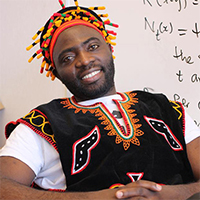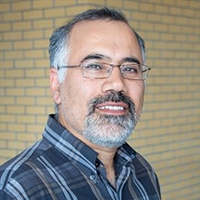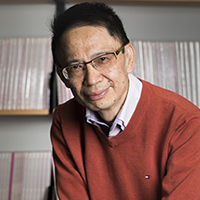Artificial Intelligence (AI) can help tackle inequities that contribute to a higher risk of the most vulnerable contracting the SARS-CoV-2 virus and dying of COVID-19, but York University researchers say the right data is crucial for that to happen. A webinar planned for Thursday, Feb. 3 will provide insights on systemic vulnerability challenges.
Vulnerable people are often more exposed to the virus that causes COVID-19 through their work in “essential” jobs such as long-term care and food production. Many are also placed at greater risk through the housing situation in their communities, overcrowded apartments and tighter living spaces. They also face more economic barriers due to the lack of access to cars or as a result of inadequate public transportation, limited food choices or food insecurity.

York Professors Jude Kong, Ali Asgary and Jianhong Wu will consider how AI can play a role in eliminating inequities, especially during crises such as the current pandemic, in the upcoming webinar Discovering COVID-19 Inequities and Systemic Vulnerabilities the Role of Artificial Intelligent Policy Implications. The webinar is part of the Transformative Disaster Risk Governance Webinar Series.

“There is a need to use artificial intelligence to collect data disaggregated by race, gender, sexuality, class, geographic location and Indigeneity to better understand how COVID-19 is disproportionately affecting vulnerable people, whether here in Canada or in Africa, where many countries have difficulty obtaining vaccines. This kind of data could not only help with today’s pandemic, but prepare for future crises by ensuring effective allocation of resources,” says Kong, an associate professor of mathematics and statistics in the Faculty of Science, and the director of the Africa-Canada Artificial Intelligence and Data Innovation Consortium.
Asgary, associate professor of disaster and emergency management in the School of Administrative Studies in the Faculty of Liberal Arts and Professional Studies, is also the associate director of the Advanced Disaster, Emergency and Rapid Response Simulation (ADERSIM). He points out that the pandemic has exacerbated global socio-economic inequities. “It has shown how crises affect people differently according to their gender, skin colour, geographic location and Indigeneity – and it doesn’t not bode well for future crises.”
The 17 United Nations Sustainable Development Goals, such as ending poverty and achieving food security, are examples of systemic challenges that AI can help address. Wu, a Canada Research Chair, NSERC/Sanofi Industrial Research Chair, University Distinguished Research Professor and the director of the Laboratory for Industrial and Applied Mathematics (LIAM), notes the data required to even document and understand these challenges is often unavailable.

Properly supported with the necessary regulatory insights and oversights so inequities are not exacerbated, AI techniques could be used to analyze satellite data and track areas of poverty, predict droughts, forecast floods (leading to better infrastructure to prevent them), optimize resources following a natural disaster and improve resiliency in structural designs, and so much more.
The webinar will take place Thursday, Feb. 3 from 10 a.m. to noon and will provide insights on some of the major equity and systemic vulnerability challenges and issues arising from the COVID-19 pandemic. The speakers will discuss the role of AI and will highlight policy implications for the current, as well as future pandemics and disasters, to minimize equity issues and systemic vulnerabilities.
For a complete list of speakers and to register, click here: https://www.yorku.ca/cifal/inequity/.


